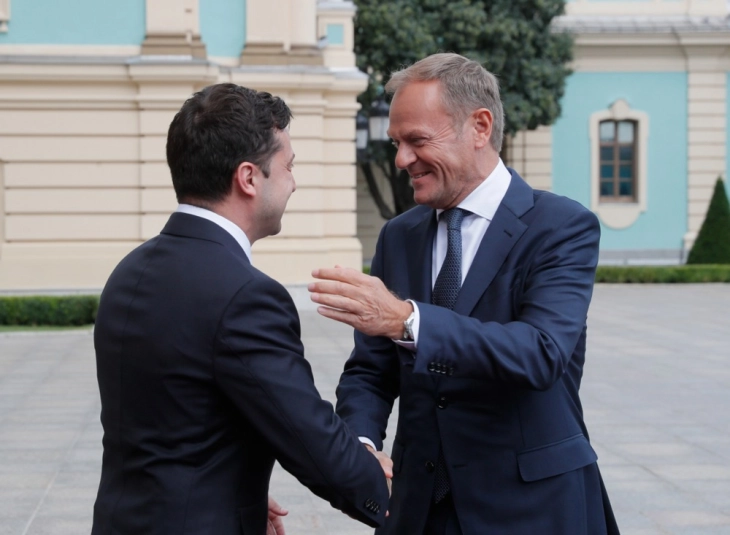The newly appointed Polish Prime Minister, Donald Tusk, arrived in Kiev for surprise talks on Monday, seeking to bolster Western support for Ukraine in its ongoing struggle against Russia’s full-scale invasion. Tusk, whose pro-European government assumed office in December, made the unannounced visit by train for security reasons.
The main objective of Tusk’s visit was to collaborate with the Kiev leadership in mobilizing more Western military aid for Ukraine, which has been facing the Russian invasion for nearly two years. Tusk emphasized that Poland is Ukraine’s most reliable and stable ally in this challenging fight against what he referred to as “evil.” Given the geographical proximity and the shared border of about 530 kilometers between Poland and Ukraine, Tusk underscored the importance of supporting Ukraine in its war efforts against the Russian attack, emphasizing that the situation affects global security.
Despite being a staunch ally, Poland’s relations with Ukraine have faced strains due to concerns from Polish lorry drivers and farmers who feel threatened by what they perceive as a lenient policy for Ukrainian freight traffic, impacting prices and livelihoods. Tusk expressed a commitment to addressing these issues through friendly discussions.
Poland, as a member of the European Union, has been supportive of Ukraine, providing military aid and hosting the largest number of refugees since the conflict began.
During his visit, Tusk was expected to commemorate Ukrainian soldiers who have lost their lives in the war against Russia. The visit coincided with an air alert in Kiev and across Ukraine, triggered by reports of a fighter jet capable of firing missiles taking off from a Russian base on the Volga.
Ukraine’s military announced the successful repelling of a Russian drone attack, intercepting eight Iranian-designed Shahed kamikaze drones launched from the Russian coast of the Sea of Azov. The drones were shot down over various Ukrainian regions.
The ongoing conflict has seen frequent drone attacks, but Ukraine reported a decline in combined missile and drone attacks since the shooting down of a Russian A-50 early warning reconnaissance aircraft and an Il-22M flying command center in mid-January. This development seems to have temporarily hampered Russia’s ability to conduct heavy aerial attacks.




Comments are closed for this post.